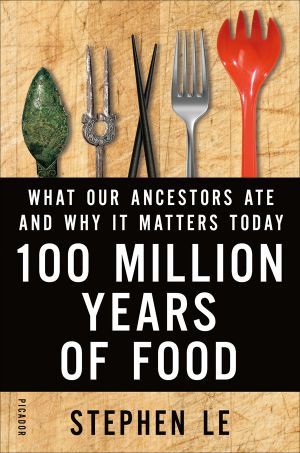100 Million Years of Food · What Our Ancestors Ate and Why It Matters Today

- Authors
- Le, Stephen
- Publisher
- Picador
- Tags
- anthropology , history , politics & social sciences , general , science , health , cookbooks , food science , 1-new , cooking education & reference , travel , new , gastronomy , fitness & dieting , science & math , diets & weight loss , agricultural sciences , social sciences , food & wine
- ISBN
- 9781250050427
- Date
- 2016-02-02T00:00:00+00:00
- Size
- 0.86 MB
- Lang
- en
**A fascinating tour through the evolution of the human diet, and how we can improve our health by understanding our complicated history with food.**
There are few areas of modern life that are burdened by as much information and advice, often contradictory, as our diet and health: eat a lot of meat, eat no meat; whole-grains are healthy, whole-grains are a disaster; eat everything in moderation; eat only certain foods--and on and on. In *One Hundred Million Years of Food* biological anthropologist Stephen Le explains how cuisines of different cultures are a result of centuries of evolution, finely tuned to our biology and surroundings. Today many cultures have strayed from their ancestral diets, relying instead on mass-produced food often made with chemicals that may be contributing to a rise in so-called "Western diseases," such as cancer, heart disease, and obesity.
Travelling around the world to places as far-flung as Vietnam, Kenya, India, and the US, Stephen Le introduces us to people who are growing, cooking, and eating food using both traditional and modern methods, striving for a sustainable, healthy diet. In clear, compelling arguments based on scientific research, Le contends that our ancestral diets provide the best first line of defense in protecting our health and providing a balanced diet. Fast-food diets, as well as strict regimens like paleo or vegan, in effect highjack our biology and ignore the complex nature of our bodies. In *One Hundred Million Years of Food* Le takes us on a guided tour of evolution, demonstrating how our diets are the result of millions of years of history, and how we can return to a sustainable, healthier way of eating.